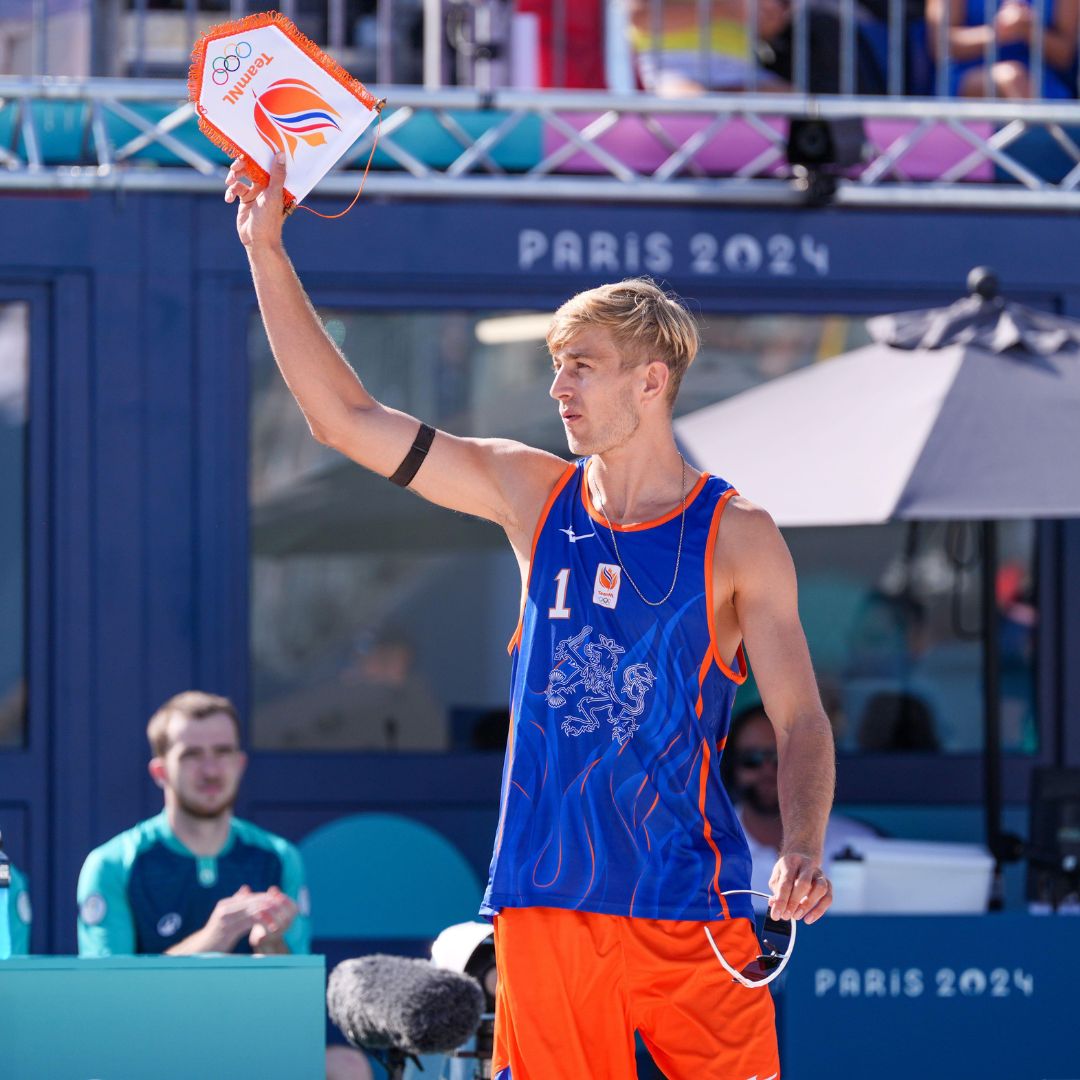
Male athletes convicted of crimes against women and girls are still allowed a place on the podium - it’s time we demanded better role models.
Steven Van de Velde, a Dutch volleyball player, arrived in Paris ahead of the Olympic Opening Ceremony safely ensconced by security personnel. The cause for his extra protection? A conviction for raping a 12-year-old British schoolgirl. Despite his crime, Van de Velde has been allowed to compete in this year’s Games and will receive special dispensations—such as avoiding any media duties—because of it.
It seems clear to me—and the crowd that booed him as he made his Olympic debut yesterday—that he should not be there.
The Paris Olympics are being hailed as the “Gender Equal Olympics” due to the 50/50 participation rate between men and women. It’s a tagline that the International Olympic Committee (IOC) and French Sports Ministry have happily bandied around. The fact that they have a known convicted child sex offender competing sullies any notions of gender equality.
Van de Velde’s victim was just 12 when she was raped by the then 19-year-old ten years ago when he travelled to the UK from Amsterdam with the explicit purpose of assaulting her - and with full knowledge of her age. He pleaded guilty to three counts of rape and was sentenced to four years in prison. After serving one year in Britain, he was transferred to a Dutch prison where he was released a month later.
Van de Velde’s place at the Olympics shows that even when a rapist gets convicted (a statistic abnormality), justice can still be denied. When Van de Velde was sentenced in 2016, the judge told him, “You were training as a potential Olympian. Your hopes of representing your country now lie as a shattered dream.” Less than a decade later, here he is, competing on behalf of his country at the world’s most prestigious sporting event.
He’s hardly the first athlete to enjoy such privileges. Van de Velde stands in a long line of male athletes who have been accused, and in his case, even prosecuted, for violent crimes against women. In the UK, where violence against women and girls has just been declared a national emergency, seven out of 20 Premier League clubs have had players or bosses investigated by the police for sexual offences since 2020. Alexander Zverev, who is competing in tennis at the Olympics, continued playing across the world while awaiting trial for domestic abuse allegations. Allowing Van de Velde and other known offenders to compete at the highest echelons of sport normalises sexist violence.
The IOC’s spokesman Mark Adams’ bewildering comment that the rape took place ten years ago also sends a worrying message that there should be a time limit on how long convicted offenders should be held accountable for their actions. What next? Will we start telling victims and survivors to simply move on after what we deem to be a sufficient amount of grieving time?
Flippant attitudes towards gender-based violence have far-reaching ramifications. In the last ten years, rape offences have increased dramatically from 16,038 reported offences in England and Wales in 2012/13 to almost 68,000 in 2023/24. Yet despite an almost sixfold increase, prosecution rates remain shamefully low. In her last report as Victims’ Commissioner for England and Wales, Dame Vera Baird stated, “The distressing truth is that if you are raped in Britain today, your chances of seeing justice are slim”. What does it say to victims when, even after an abuser has been convicted, they are still given a literal pedestal?
Olympians are not just elite athletes; they are role models, and whether or not the Dutch delegation feels the same way, a convicted sex offender should not be held up as a role model. Allowing a child rapist a shot at one of the world’s highest accolades sets a damaging precedent and a dangerous message during a time when misogyny is on the rise in young men and boys and violence against women and girls has reached epidemic levels.
Extreme measures are being taken to shield Van de Velde, who isn’t staying at the Olympic Village (his own suggestion) and won’t be interviewed or face any media at all. Who are we protecting? The message being beamed across the world is that Van de Velde is worthy of special privileges. If only we treated victims and survivors the same way.




.png?w=600)


